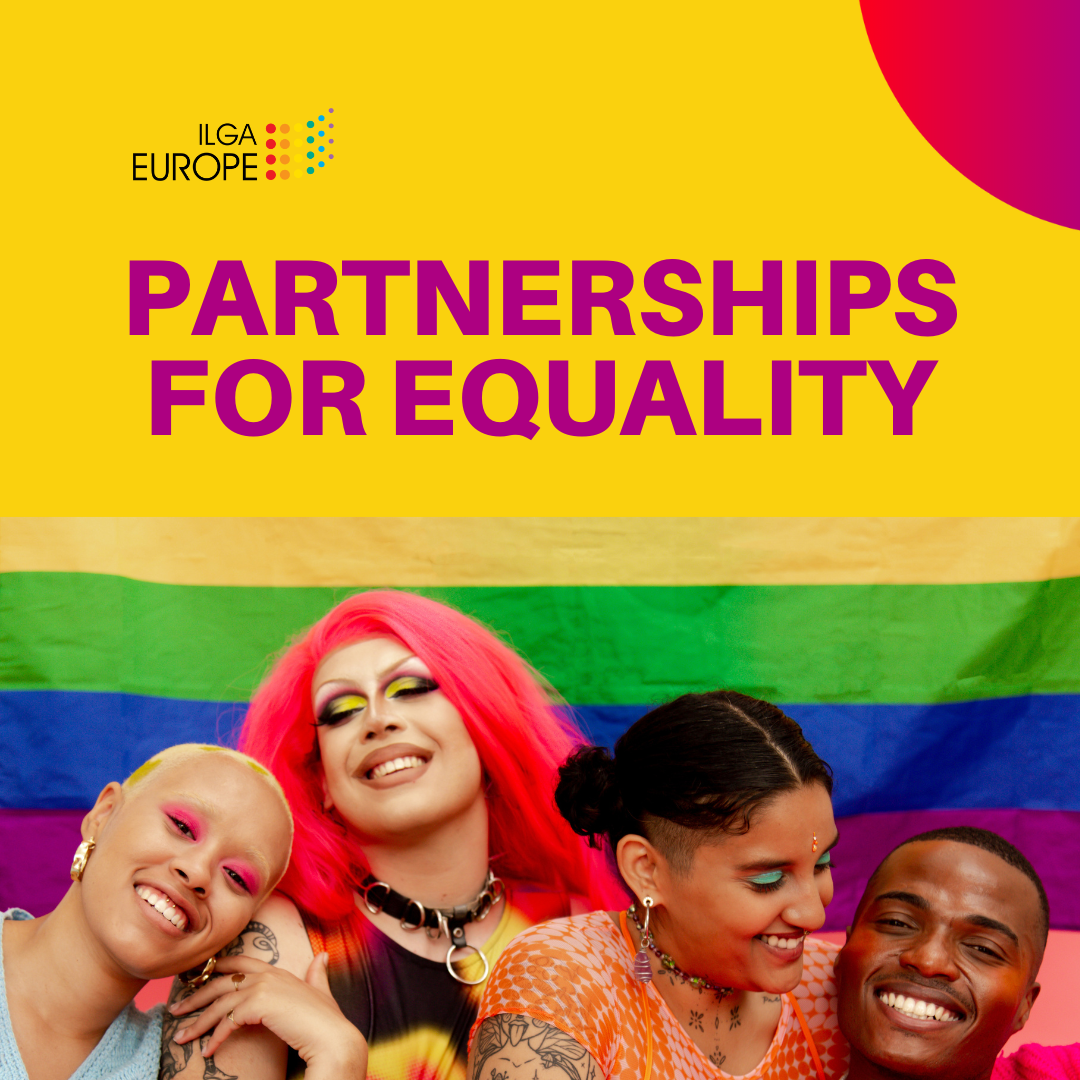Communicating for Change

A communications needs assessment of the LGBTI movement in Europe and Central Asia, for donors to help create new grant opportunities to support communications efforts.
In October 2019, we launched a survey to better understand how communications are currently being used, and the needs/capabilities LGBTI groups and organisations in Europe and Central Asia have for this critical organisational function. Almost 200 LGBTI groups and organisations, small and big, registered and non-registered, ILGA-Europe members or not, participated in this survey.
Consisting of surveys, focus groups, interviews and webinars with 190+ activists from 45 countries, this is the most in-depth investigation into the communications strength of the movement in Europe and Central Asia.
ILGA-Europe are using the results to plan for new guides and resources to support strategic communications work, and, with the help of our donors, creating new grant opportunities to support communications efforts.
Partnerships for LGBTI equality
Annual Review 2021
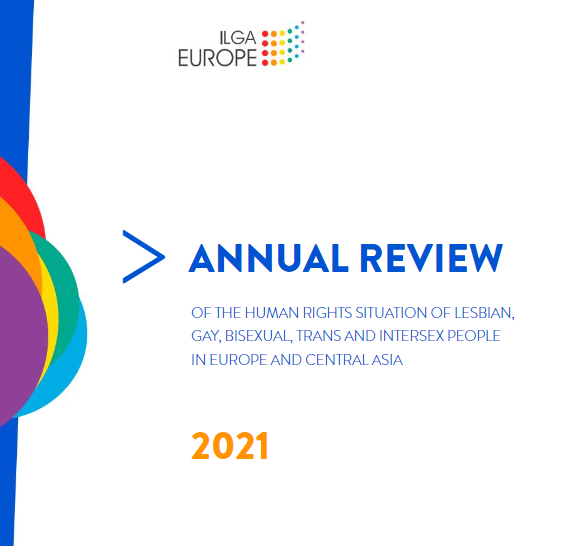
The Human Rights Situation of Lesbian, Gay, Bisexual, Trans and Intersex People in Europe and Central Asia between January-December 2020.
The Annual Review is ILGA-Europe’s annual publication documenting legal, political and social developments in 54 countries and 4 European institutions over the past calendar year. It is a unique report tracking key positive and negative trends in relation to LGBTI equality and human rights in Europe and Central Asia.
This year’s review shows that as a result of the unprecedented events of 2020, LGBTI people and communities in Europe have been pushed to the brink.
ILGA-Europe’s submission to Progress Reports of the European Commission 2020
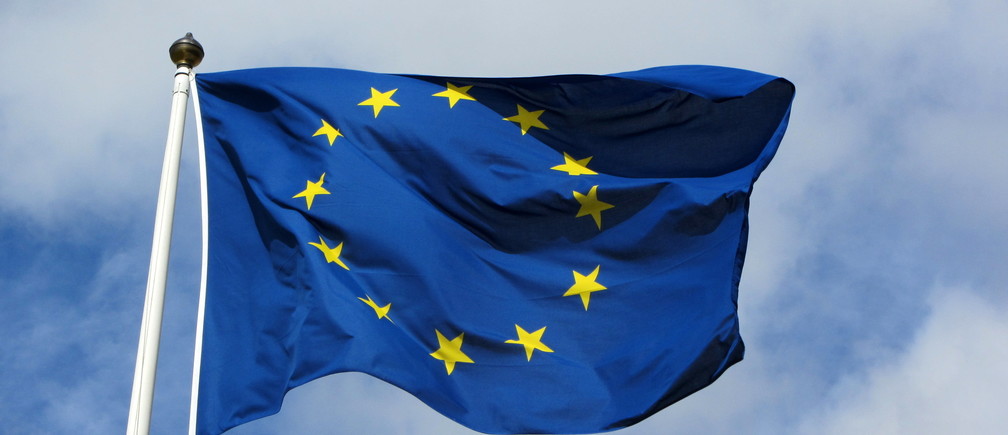
LGBTI ENLARGEMENT REVIEW 2020
In order to ensure an accurate representation of the developments relating to the human rights of LGBTI people ILGA-Europe and ERA, together with our member organisations in EU accession countries, have compiled this submission to the Progress Reports of the European Commission.
This report reflects developments in the recognition and respect for the human rights of LGBTI people in each accession country during the period from January through December 2020. It is intended to assist the European Commission in assessing the progress made en route to EU accession in each country to date. In addition to outlining key developments and challenges on the road to LGBTI equality, the report also highlights gaps in legislation and policy for the promotion and protection of the human rights of LGBTI people, and the priorities which authorities in each country should tackle in the coming year, as identified by LGBTI activists in the respective countries.
In light of the devastating impact of the Covid-19 pandemic this year on the LGBTI community and work of LGBTI activists, we have also included information about its impact, and the necessary assistance that the EU can help provide in supporting LGBTI people. ILGA-Europe and ERA members have reported that the LGBTI community has been heavily impacted by the Covid-19 pandemic and that state support services have failed to reach the most vulnerable in LGBTI communities. As a result, LGBTI NGOs have had to adapt their previous plans and budgets to cover humanitarian aid gaps within the State response to the crisis, providing food, hygiene kits and shelter to LGBTI people who have lost their jobs or been rendered homeless. This has left organisations depleted in terms of human resources and finances, and they have found donors and funders in many cases to have not been flexible with their funding. Even funding specifically earmarked for Covid-19 response has not been possible to use for service provision and support. Given the unsustainable response by governments, it is more essential than ever for the EU to support LGBTI people in the accession countries via funding for supporting LGBTI communities and community-needs advocacy. This funding is essential in order to allow LGBTI NGOs to support the community during the pandemic and ensuing economic crisis, and for them to also have the financial and human resources capacity to continue advocacy work for legislative and policy change within the accession framework. A survey conducted by ERA with its members in the summer of 2020, found that the Covid-19 related measures taken by governments have had numerous negative consequences for the LGBTI+ community including: interruption of essential health services by state institutions, inability to receive essential community services from NGOs, heightened levels of homelessness, increased incidents of domestic violence, closure of LGBTI+ businesses, a significant loss of jobs and rising mental health problems. LGBTI+ organisations have also faced challenges due to the Covid-19 pandemic measures including: loss of funding, closure of community centres, cancellation of services and other activities as well as a general shift towards emergency humanitarian work for LGBTI+ people in need.
COVID-19 in marginalised groups: challenges, actions and voices
Marginalised groups such as people experiencing homelessness, undocumented migrants, sex workers, people who use drugs, lesbian, gay, bisexual, transgender and intersex (LGBTI) people and prisoners are among those hardest hit by the coronavirus disease (COVID-19) pandemic, and yet are among the least protected from it by governmental actions to date.
The Nobody Left Outside (NLO) coalition has developed this briefing paper to:
1) Explain to policymakers the particular challenges and impacts of the COVID-19 pandemic and government responses among marginalised groups in Europe,
2) Recommend solutions to help improve government responses, recovery measures and inform preparedness plans,
3) Present the voices and actions of marginalised communities and civil society organisations currently working on the frontlines to support them through the pandemic and beyond.
COVID-19 impacts on LGBTI communities in Europe and Central Asia: A rapid assessment report
COVID-19 and the resulting measures to contain and combat the virus are generating complex challenges and risks. While the virus does not discriminate per se, it is very clear that it hits marginalised communities in our societies disproportionally harder. In addition, social distancing and other prevention measures, as needed as they are, can have unwanted negative impacts on the lives of marginalised groups.
COVID-19: Tips for Online Management of Financial Resources for LGBTI Organisations
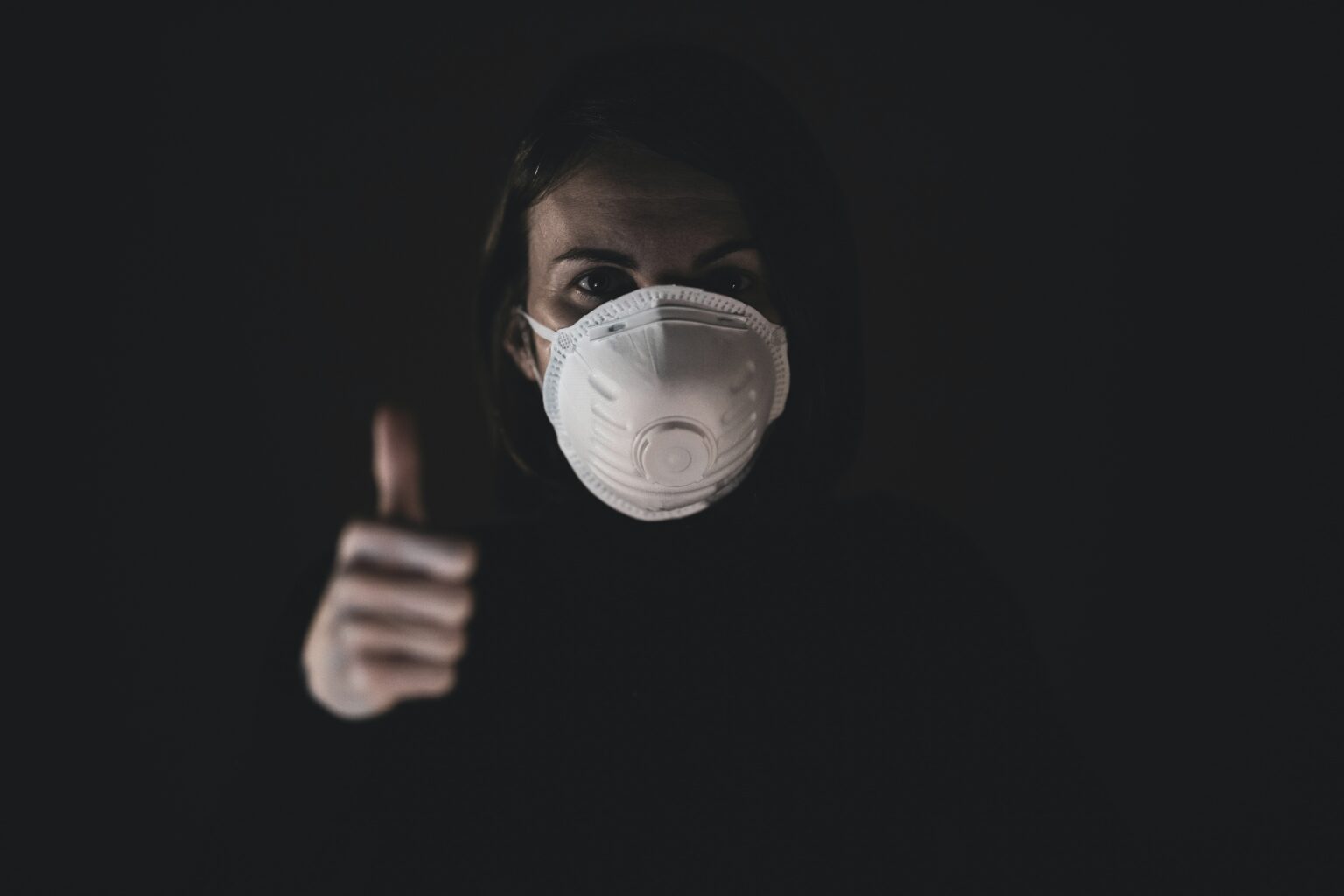
Covid-19 is having far-reaching consequences for LGBTI communities and organisations around the world. While you may currently be focussed on understanding what the immediate future looks like for your organisation and your activities, don’t forget to dedicate some time to thinking through how you are going to continue operating your finances and administration during this turbulent time.
Some risks for organisations include losing money (spending a budget line twice because of a lack of coordination), unauthorised payments, loss of financial documents, receiving (and paying) fake invoices, difficulties reporting to funders, and difficulties in obtaining instalments from funders.
ILGA-Europe has gathered some tips on how to stay on top of the practical side of keeping your organisation running during the pandemic.
States’ Positive Obligations Under International Human Rights Law During The Coronavirus Outbreak
Evidence Requirements to Hold States Accountable Through Litigation and Advocacy
Certain areas of States’ positive obligations depend on whether the State knew or ought to have known about risks, actions or inactions resulting in human rights violations. It is therefore important to collect sufficient evidence as the violations are taking place to strengthen advocacy activities and for potential future litigation; and to ensure that government bodies are being informed about potential risks and incidents. Documentation is thus a key element of legal accountability.
Obligations Of States In The field Of Human Rights In The Context Of Covid-19
In times of emergency, International and European Human Rights Law enable States to derogate from their obligations and enter a different regime of legality; provided they respect some fundamental principles. The aim of this paper is to set out the strict procedural and substantive rules States must follow when entering a situation of de jure derogation, i.e. officially notifying the international community that they will adopt measures impacting the human rights of their citizens. From a geographical point of view, the paper covers the application of derogatory measures in European and Central Asian States, to which the International Covenant on Civil and Political Rights and the European Convention on Human Rights apply.
COVID-19 and specific impact on LGBTI people and what authorities should be doing to mitigate impact
COVID-19 is generating complex challenges and risks and while the virus does not discriminate, it is very clear that it hits marginalised communities in our societies disproportionally hard. In addition, social distancing and other prevention measures, as needed as they are, can have unwanted negative impacts on the lives of marginalised groups. This should be taken into account and mitigated as much as possible.
Rainbow Europe Map and Index 2020
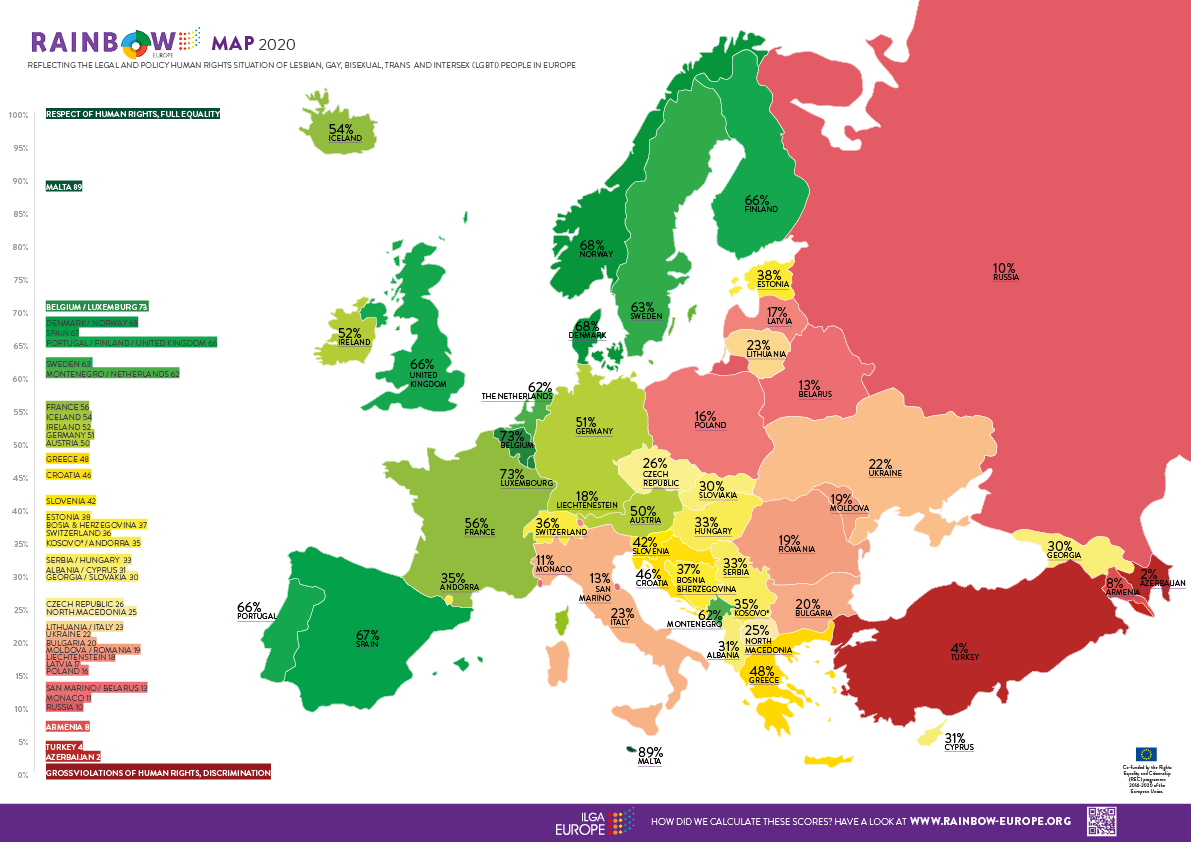
ILGA-Europe Rainbow Map and Index 2020 reveals that once-leading countries in Europe are falling behind in their commitments to equality for LGBTI people.
Key findings of the Rainbow Map 2020 include (as of May 2020):
- There has been no positive change in 49% of countries
- For the second year in a row, countries are moving backwards on the Rainbow Index, as existing protections are disappearing
- Trans rights are where most of the current movement in terms of LGBTI equality is happening, for better or worse.
- Other forward movement, although on a smaller scale, is in the inclusion of equality measures protecting intersex people against discrimination
- Regression is most visible where civil and political rights are eroded: LGBTI human rights defenders increasingly at risk, authorities taking active measures to undermine civil society associations, and attempts to ban public events.
Executive Summary
Rainbow Europe – ILGA-Europe’s annual benchmarking tool – is comprised of the Rainbow Map and Index and national recommendations. ILGA-Europe have produced the Rainbow Map and Index since 2009, using it to illustrate the legal and policy situation of LGBTI people in Europe.
The Rainbow Map and Index ranks 49 European countries on their respective legal and policy practices for LGBTI people, from 0-100%.
In order to create our country ranking, ILGA-Europe examine the laws and policies in 49 countries using a set of 69 criteria – divided between six thematic categories: equality and non-discrimination; family; hate crime and hate speech; legal gender recognition and bodily integrity; civil society space; and asylum. More information on the list of criteria and their weight on the total score can be found at www.rainbow-europe.org/about
Rainbow Europe 2020 individual criteria and the percentage ‘weight’ assigned to them remain exactly the same as the 2019 version, meaning that it is easier than ever before to compare a country’s momentum or regression on LGBTI equality laws.
Policymakers, researchers and journalists are able to go ‘behind’ the points and see the original information sources that we base our Map and Index ranking on. This additional layer of information is available through our updated Rainbow Europe web module, www.rainbow-europe.org.
The Rainbow Map and Index presents a picture of what the policy landscape is like right now, while our country-specific recommendations attempt to answer the question “what’s next?” These recommendations for national policymakers are intended to encourage policymakers to address the most pressing legal and policy priorities within the framework of our Rainbow Map and Index. The recommendations were gathered following an online consultation with a wide range of LGBTI organisations in the various countries. As a result, the recommendations are tailored to the needs of activists working on the ground.
| TOP 5, Rainbow Europe 2020 | BOTTOM 5, Rainbow Europe 2020 |
| 1. Malta (89%) | 45. Monaco (11%) |
| 2. Belgium (73%) | 46. Russia (10%) |
| 3. Luxembourg (73%) | 47. Armenia (8%) |
| 4. Denmark (68 %) | 48. Turkey (4%) |
| 5. Norway (68%) | 49. Azerbaijan (2%) |
For the fifth year in a row, Malta continues to occupy the number one spot on the Rainbow Europe Map, with a score of 89%.
Belgium comes second place for the third time with a score of 73%.
Luxembourg receives the same score as Belgium and occupies the third spot on the ranking for the second year in a row.
The three countries at the other end of the Rainbow Europe scale are Azerbaijan (2%), Turkey (4%), and Armenia (8%). Turkey’s score has been decreasing since 2015, due to restrictions on freedom of assembly and association. Azerbaijan has also lost points over the past two years due to irregularities on legal gender recognition.
Hungary is the country with the most dramatic drop in its score, losing 8.46% points in relation to the suspended procedures for legal gender recognition and the lack of proper state protection at public events. Poland has also dropped by 1.9% and is now the lowest EU country on the map.
Another important deduction happened, with France losing 6.80% points due to the expiration of the government’s action plan.
Montenegro, North Macedonia, and the Netherlands were the three countries with the biggest jump in scores. Montenegro announced a comprehensive action plan for the next four years and prohibited discrimination based on sex characteristics. North Macedonia amended its equality and criminal codes, adding sexual orientation and gender identity as protected grounds. In the Netherlands, the Equal Treatment Act was amended with the inclusion of gender identity, gender expression, and sex characteristics grounds.
Equality action plans have expired in Belgium, Finland, and France, while Croatia, Ireland, and Kosovo have shortcomings and implementation problems with their action plans. Serbia and Andorra included sexual orientation and gender identity protection in healthcare legislation. Belgium and the Netherlands were the only countries that recognised ‘sex characteristics’ in their equality laws.
Recognition of family legislation is stagnating across Europe. This year, only Northern Ireland (UK) introduced marriage equality and Monaco recognised the right to cohabitation for same-sex couples (coming into effect on 27 June 2020). Serbia imposed a ban on medically assisted insemination services for people with a history of same-sex relationships.
Court judgements in several countries had groundbreaking effects on the lives of LGBTI people, including Spain’s Constitutional Court’s ruling against the age limit for gender marker change for trans people; Switzerland’s Federal Court decision saying that the Constitution protects ‘gender identity’ under ‘sex/gender’; and Kosovo’s Basic Court decision approving the legal gender recognition of a trans man.
North Macedonia was this year’s only country extending protection from hate crime, amending its Criminal Code to add sexual orientation and gender identity grounds. Switzerland’s referendum approved the inclusion of ‘sexual orientation’ grounds in the Criminal Code.
The right to self-determination for trans people has been recognised only in Iceland with its new Gender Autonomy Act. Legal gender recognition procedures have become more accessible through trans activists’ efforts in Armenia, Cyprus, Kosovo, and Montenegro. The implementation of existing procedures has worsened in Azerbaijan, Georgia, Serbia, Turkey, and Northern Ireland (UK).
Guide: COVID-19 Pro bono legal resources and support

As part of our ‘Protect, Adapt and Rally’ package, please find below an overview of leading pro bono service providers and clearing houses that are offering their services to LGBTI organisations in finding solutions to the consequences of COVID 19 at the organisational level and other areas of LGBTI rights affected by the pandemic. Please consult the list below on Pro bono legal resources for guidance and support with changed organisational matters and associated impact of COVID 19 to find best catering for your needs.
Annual Review 2020
The Human Rights Situation of Lesbian, Gay, Bisexual, Trans and Intersex People in Europe and Central Asia between January-December 2019.
The Annual Review is ILGA-Europe’s annual publication documenting legal, political and social developments in 54 countries and 4 European institutions over the past calendar year. It is a unique report tracking key positive and negative trends in relation to LGBTI equality and human rights in Europe and Central Asia.
This year’s review paints a complex picture that diverges from the widespread narrative that all is well for LGBTI people in large parts of Europe.
ILGA-EUROPE’S SUBMISSION TO PROGRESS REPORTS OF THE EUROPEAN COMMISSION 2019
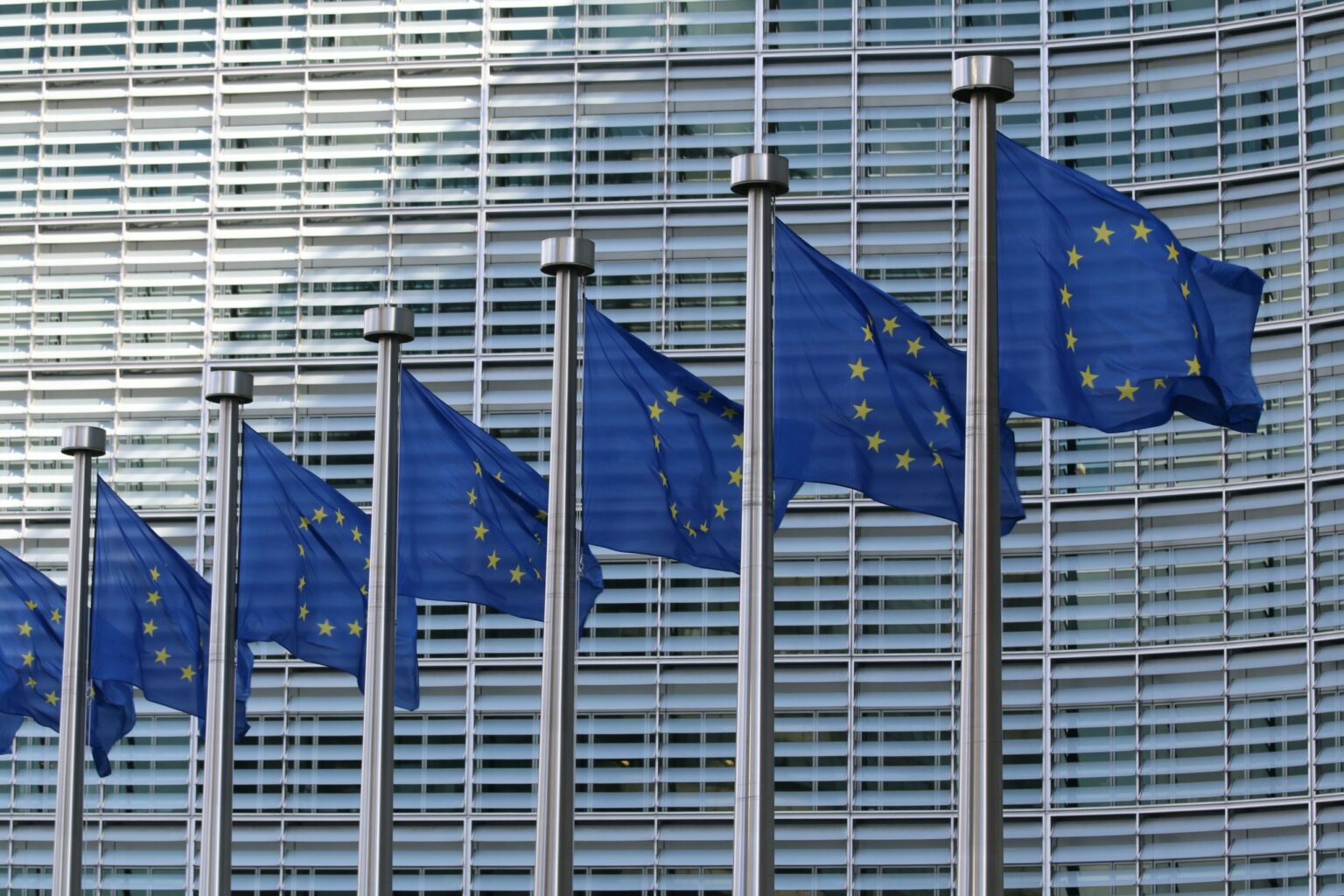
LGBTI ENLARGEMENT REVIEW 2019
In order to ensure an accurate representation of the developments relating to the human rights of LGBTI people ILGA-Europe and ERA, together with our member organisations in EU accession countries, have compiled this submission to the Progress Reports of the European Commission.
This report reflects developments in the recognition and respect for the human rights of LGBTI people in each accession country during the period from January through December 2019. It is intended to assist the European Commission in assessing the progress made en route to EU accession in each country to date. In addition to outlining key developments and challenges on the road to LGBTI equality, the report also highlights gaps in legislation and policy for the promotion and protection of the human rights of LGBTI people, and the priorities which authorities in each country should tackle in the coming year, as identified by LGBTI activists in the respective countries.
We hope that this input will be useful in the process of assessing the progress of each country to date, and in identifying key priorities in the coming year.
We also hope that this report will be used as guidance by the EU officials, MEPs and EU representatives in the accession countries throughout the year, when referring to rights of LGBTI persons in the accession countries and the much needed further improvement of their position in society and within legal and policy frameworks.
The EU accession process has been, and continues to be, a driving force for change in the recognition of the human rights of LGBTI people throughout the region. Year on year the human rights of LGBTI people continue to feature notably in the reports, assessing progress to date and setting out recommendations for the authorities to implement in the future. In order to ensure this implementation, we deem it necessary to extend this reporting process so that it includes mechanisms for the follow-up of the recommendations to national governments, and for reporting back to civil society on how data published in the reports are used in this regard throughout the year. In this way we can ensure that the reports reach their full potential when it comes to securing social and legal change for the rights of LGBTI people in the region.
Briefing note: LGBTI-inclusive Gender Equality work
It is a pivotal moment in Europe, and beyond, when it comes to discussions of gender and gender equality.
With the European Commission’s next Gender Equality Strategy on the near horizon, it is vital to ensure that the Strategy and the resulting policies, programmes, and positions are comprehensive and modern, addressing the gender-based needs of all women and girls in Europe and acknowledging the existence of non-binary and third gender European and global citizens.
On our briefing note, you can find points to remember in these ongoing discussions on inclusive gender equality policies and how to best frame issues impacting LBTI women, as well as non-binary people, where appropriate.
This is a briefing note prepared by ILGA-Europe.
For more information, you can contact Cianán Russell, cianan@ilga-europe.org or Katrin Hugendubel, katrin@ilga-europe.org
Responding to the anti-gender movement

In the last few years ILGA-Europe worked on various fronts to better understand the anti-gender movement and its impact on public discourse and the lives and rights of LGBTI communities.
Conservative and religious actors are collaborating nationally and transnationally against so-called ‘gender ideology’. Often referred to as the ‘anti-gender movement’, it is a growing coalition of conservative and religious forces, spreading hateful discourses to wedge public opinion, often targeting LGBTI people and their human rights, sexual and reproductive rights, sexual education, and gender studies. In some countries the discourse has led to mobilisation against significant national reforms.
Discourse about so-called ‘gender ideology’ is present in a large and growing number of European countries and due to social media and digital tools, these concepts and communication strategies travel fast. Despite some remarkable successes, it has so far been challenging for the LGBTI movement to respond effectively and to develop our own narratives to counter attacks. Developing new narratives, framing and testing our messages are crucial skills to succeed.
Background
In the last few years ILGA-Europe worked on various fronts to better understand the anti-gender movement and its impact on public discourse and the lives and rights of LGBTI communities. We collected research, monitored country situations, talked with activists, allies and researchers to better understand the phenomenon and its implications. We have worked closely with member organisations in responding and resisting to attacks through our advocacy work but also contributing to build the movement’s capacity in this area.
In January 2019 ILGA-Europe hosted the workshop for LGBTI activists “Responding to the anti-gender movement: The rhetoric of the opposition, our movement’s capacities and ways to build our narratives”. The workshop aimed at sharing the information and experience gathered, and to discuss how to better tackle the anti-gender movement, not only through local and national strategies, but also through collaborative international efforts.
The results of this event were presented in June 2019 in the course of the webinar Lessons learned from the “Responding to anti-gender” workshop.
If you are an LGBTI activist and you wish to receive the recording of the webinar please contact Svetlana Zakharova, ILGA-Europe’s Senior Programmes Officer: svetlana@ilga-europe.org.
Research
In the course of the workshop activists identified frames that have been used so far and that they were planning to use again in the future tactics. Therefore the group decided to develop research to better understand the actual impact of these frames and the mental models around anti-gender discourse.
Objectives of the research
- Improve understanding of mental models around anti-gender discourse
- Test possible narratives, frames, messages to respond effectively
- Move from assumptions to systematic research.
- Analyse discourse outside capitals including in small cities
- Train members on the use of research and message testing
- Develop cooperation between LGBTI organisations and research agencies
- Provide members with a set of customised framing recommendations
Results of the research
The research project consisted in 3 focus groups in 4 countries and the main lessons learned were presented in the course of a webinar Testing narratives to respond to the anti-gender discourse: Results of the project that was held in December 2019.
If you are an LGBTI activist and you wish to receive the recording of the webinar please contact Svetlana Zakharova, ILGA-Europe’s Senior Programmes Officer: svetlana@ilga-europe.org.
Protecting Intersex People in Europe
A toolkit for law and policymakers
Bodily autonomy – making one’s own informed decisions about one’s body and what happens to it – is a fundamental human right, repeatedly enshrined throughout myriad human rights instruments globally. Each of us holds this right individually. However, it is not equally protected nor enforced for everyone. Across Europe, as well as much of the world, the right to bodily autonomy is regularly and greviously violated on the basis of sex characteristics. These violations are increasingly documented, and today, people with variations of sex characteristics are internationally recognised as victims of harmful medical practice and other human rights violations.
From 2009 to the present, United Nations Treaty Bodies have called on Member States to stop human rights violations against intersex people 49 times. Of these, Council of Europe Member States have received 26 UN Treaty Body recommendations, 15 of these in the past two years alone. The Yogyakarta Principles plus 10 call for protection of intersex people under the ground of “sex characteristics” and for ending human rights violations on intersex people, including protecting their right to bodily and mental integrity.
Additionally, European bodies such as the Parliamentary Assembly of the Council of Europe and the European Parliament have both passed resolutions (2017 and 2019, respectively) calling for, among other protections and policies, the prohibition of sex-“normalising” surgery and other treatments practised on intersex children without their informed consent in national law among their respective Member States.
On a national level, so far only Malta (2015) and Portugal (2018) have established protections for intersex people from violations of their bodily integrity and, together with Greece (2016), protection against discrimination on the ground of “sex characteristics”.
Additionally, courts have begun to recognise and adjudicate on the human rights violations faced by intersex people, both with respect to bodily integrity and gender markers.
ILGA-Europe and OII-Europe are delighted to present the law and policymakers with this toolkit and accompanying appendix and checklist so that we can work together to ensure the protection of all people on the basis of sex characteristics, including those most vulnerable to violations and abuses.
Rainbow Europe Map and Index 2019
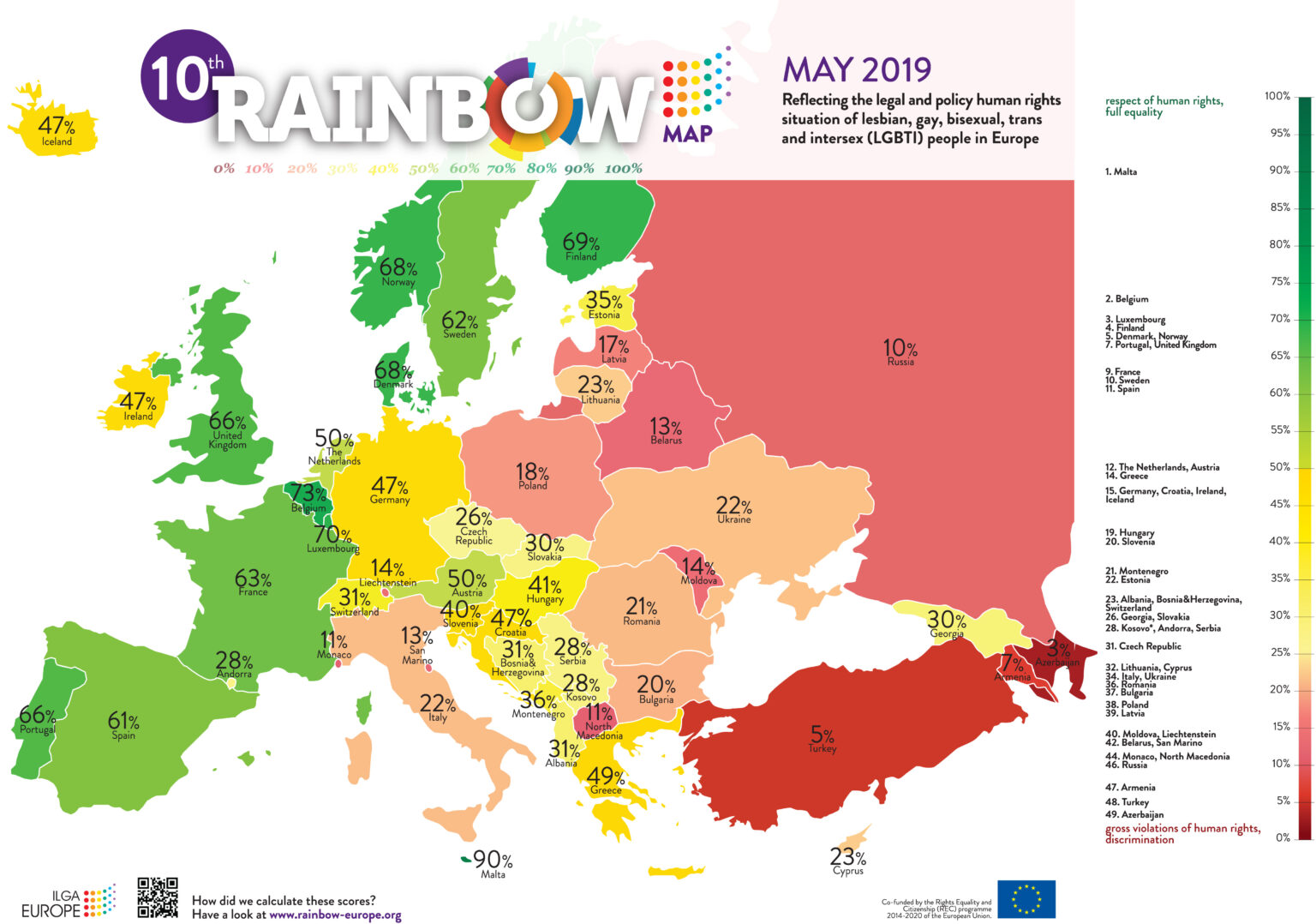
ILGA-Europe’s annual benchmarking tool, which ranks 49 countries in Europe on their LGBTI equality laws and policies, reveals not only a standstill but a visible backslide on laws and policies safeguarding equality and human rights of LGBTI people.
Decline is indeed clearly noticeable on this year’s Rainbow Map. For the first time in the Index’s ten-year history, countries are moving backwards as existing laws and policies disappeared: Poland no longer provides access to medically assisted reproduction for single women, while Bulgaria removed all their administrative and legal procedures for changing name or gender marker in the official documents for trans people.
Serbia and Kosovo did not renew their equality action plans. Bulgaria, Hungary and Turkey are countries which slide back on the ranking because of their governments’ failure to uphold fundamental civil and political rights such as freedom of assembly, freedom of association and protection of human rights defenders over the past year.
The result is an increasingly unsafe and unsustainable environment for LGBTI organisations and human rights defenders in a growing number of countries.
The 2019 Rainbow Europe also tells the story of an evolving movement. The 10th edition of the Index introduces changes in the weight given to different issues it captures. The message is clear: for our movement in Europe, equality and non-discrimination laws, legal gender recognition, bodily integrity, protection from hatred and violence, and family rights are all interconnected and equally essential for the full enjoyment of human rights for LGBTI people.
The Rainbow Map&Index presents a picture of what the policy landscape is like right now, while our Recommendations attempt to answer the question “what’s next?” These country-spesific recommendations for national policymakers are intended to encourage policymakers to address the most pressing legal and policy priorities within the framework of our Rainbow Map&Index.
Annual Review 2019
The Human Rights Situation of Lesbian, Gay, Bisexual, Trans and Intersex People in Europe and Central Asia between January-December 2018.
This 2019 edition of the Annual Review perfectly captures the multiple layers of the “state of play” for LGBTI people in Europe and Central Asia at the moment. We do hope that this Annual Review will inform many conversations, especially between civil society and political actors, and will contribute to political decision-making which puts the needs of people at its core.
ILGA-EUROPE’S SUBMISSION TO PROGRESS REPORTS OF THE EUROPEAN COMMISSION 2018
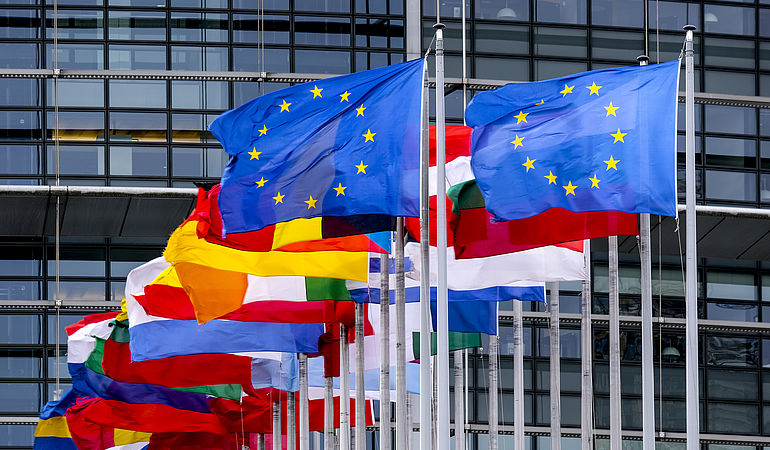
LGBTI ENLARGEMENT REVIEW 2018
The EU accession process has been, and continues to be, a driving force for change in the recognition of the human rights of LGBTI people throughout the region not only through the criteria that countries have to meet, but through the annual Enlargement Reports. Year on year the human rights of LGBTI people continue to feature notably in the reports, assessing progress to date and setting out recommendations for the authorities to implement in the future , as well as providing a key tool used by LGBTI organisations in the region to engage with their governments and hold them accountable for the commitments made.
In order to ensure an accurate representation of the developments relating to the human rights of LGBTI people ILGA-Europe, together with our member organisations in EU accession countries, have compiled this submissions to the Progress Reports of the European Commission.
This report reflects developments in the recognition and respect for the human rights of LGBTI people in each accession country during the period from January through December 2018. It is intended to assist the European Commission in assessing the progress made en route to EU accession in each country to date. In addition to outlining key developments and challenges on the road to LGBTI equality, the report also highlights gaps in legislation and policy for the promotion and protection of the human rights of LGBTI people, and the priorities which authorities in each country should tackle in the coming year, as identified by LGBTI activists in respective countries.
We hope that this input will be useful in the process of assessing the progress of each country to date, and in identifying key priorities in the coming year.
Strategic Framework 2019-2023

For a long time at ILGA-Europe there was a sense that we needed to be experts on a range of things, on specific topics, on a specific area of law, on specific types of capacity building, and so on. At the end of our previous strategic plan, what we really anchored at the core is that we do not need to be the experts, for there are many, many experts out there. We came to an understanding that our role is to harness the knowledge and capacity that exists in the wider movement and to make sure it’s amplified. Our role is to have this unique overview of everything that’s going on, and to connect those with expertise and resources, whether they’re in LGBTI movement or from other parts of society, to increase the overall ability of LGBTI activists to bring about change for their communities.
In addition to this shift in thinking, we wanted to have a tool that would guide us, keeping in mind the world we live in, where we need to be able to adapt quickly, to be agile, and to understand that different parts of the work are completely interconnected.
This Strategic Framework examines and expands on the roles ILGA-Europe will play over the next five years, where the organisation has a unique value to add and where we’re uniquely placed to play those roles. It’s about how and where we complement others rather than reinventing the wheel or replicating what is already being done very well. It’s about our need for flexibility and adaptability in a rapidly evolving landscape, rather than focusing on specific thematic priorities or specific countries.
